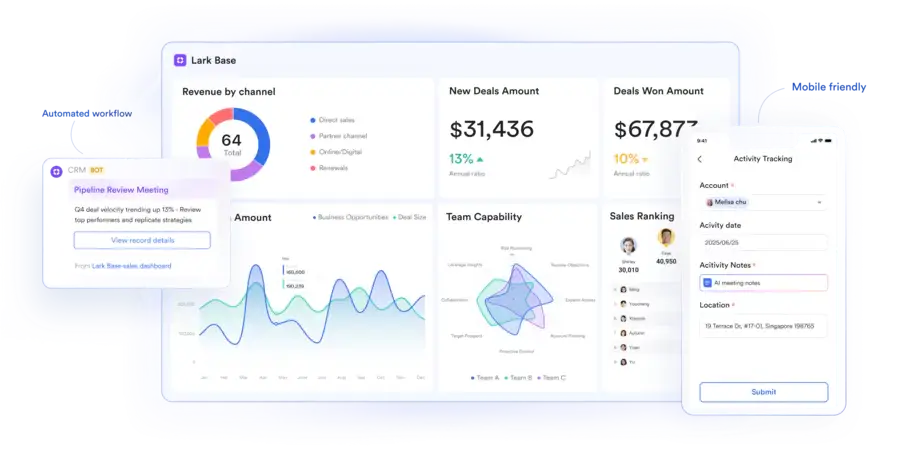Healthcare providers worldwide face increasing pressures, from mounting administrative duties to the continuous demand for improved patient care. To tackle these challenges effectively, many healthcare organisations are now turning to virtual assistance. This innovative solution not only helps streamline processes but also enhances the overall efficiency and quality of healthcare delivery. Below, we explore why virtual assistance has become an integral part of modern healthcare teams.
Increasing Administrative Efficiency
A significant portion of a healthcare professional’s day often involves administrative tasks such as scheduling appointments, managing patient records, billing, and processing insurance claims. These tasks, though essential, divert valuable time from direct patient care. Healthcare virtual assistants can significantly ease this administrative burden, allowing healthcare professionals — especially those who, like nurses, balance clinical and administrative duties — to dedicate more time to their core responsibilities.
Virtual assistants specialise in handling routine administrative functions remotely, ensuring tasks are completed efficiently and accurately. As a result, healthcare practitioners experience reduced burnout, improved productivity, and greater job satisfaction.
Cost-Effective Resource Allocation
Employing full-time, on-site staff for administrative roles can be costly. Salaries, benefits, office space, and equipment all add up. By using virtual assistance, healthcare providers can achieve significant cost savings. Remote virtual assistants work from their own spaces, using their equipment, and are typically compensated based on work completed or hours spent.
This cost-effective strategy allows healthcare providers to allocate financial resources more effectively, directing savings towards patient care improvements, advanced medical technologies, and other vital areas within the practice.
Improved Patient Care and Satisfaction
Patient satisfaction is directly linked to the quality of care and efficiency of service delivery. Virtual assistants help improve patient interactions by providing prompt responses to enquiries, efficient scheduling, and timely follow-ups. Patients experience shorter waiting times, fewer scheduling errors, and more attentive care from medical professionals who are less burdened by administrative tasks.
Furthermore, virtual assistants enhance the patient experience by offering support through digital platforms, facilitating a smoother, more coordinated healthcare journey. This level of service ensures patients feel valued and cared for, significantly enhancing satisfaction rates.
Flexibility and Scalability
One of the standout benefits of employing virtual assistants is their flexibility and scalability. Healthcare demands can fluctuate dramatically, influenced by seasonal illnesses, pandemics, or even organisational growth. Virtual assistants can be engaged on-demand, providing the ability to quickly scale services up or down as required without the long-term commitments associated with permanent staff.
This adaptability ensures healthcare teams remain responsive to varying demands, maintaining service standards without overstretching existing resources or compromising quality.
Access to Specialised Skills
Healthcare virtual assistants often come with specialised skill sets tailored to healthcare administration, medical coding, electronic health records management, and patient communication. These professionals are typically highly trained and experienced in healthcare-specific systems and software, providing a seamless integration into existing practices.
Having access to specialised skills remotely means healthcare providers can rely on expert support in crucial administrative and operational areas, further enhancing organisational efficiency and accuracy.
Secure and Compliant Operations
Security and compliance are non-negotiable in the healthcare industry, particularly concerning patient data protection and confidentiality. Virtual assistants are trained and certified in adhering to critical standards such as HIPAA (Health Insurance Portability and Accountability Act) and other relevant regulations.
Virtual assistants working within the healthcare sector operate under stringent data security protocols, ensuring patient information remains secure and confidential at all times. This commitment to compliance provides healthcare organisations with peace of mind and helps maintain trust with patients.
Global Trends in Healthcare Virtual Assistance
Countries worldwide are increasingly utilising healthcare virtual assistants to improve efficiency and reduce operational costs. In the United States, virtual assistance has rapidly expanded, driven by the need to manage healthcare costs and increase patient access. Similarly, the United Kingdom and Australia have seen notable growth in adopting remote administrative support within healthcare services.
Significantly, the Philippines has emerged as a prominent hub for providing skilled virtual assistants in healthcare due to its educated workforce, proficiency in English, and familiarity with international healthcare standards. For healthcare organisations seeking quality remote support, engaging an outsourced healthcare virtual assistant in the Philippines provides a practical, reliable, and cost-effective solution.
Embracing the Future with Virtual Healthcare Assistants
As the healthcare industry continues to evolve, the integration of virtual assistance has become essential in maintaining efficiency, controlling costs, and enhancing patient care. Virtual assistance is a sustainable approach to healthcare management, empowering healthcare teams to deliver outstanding patient care and optimised operational efficiency.













